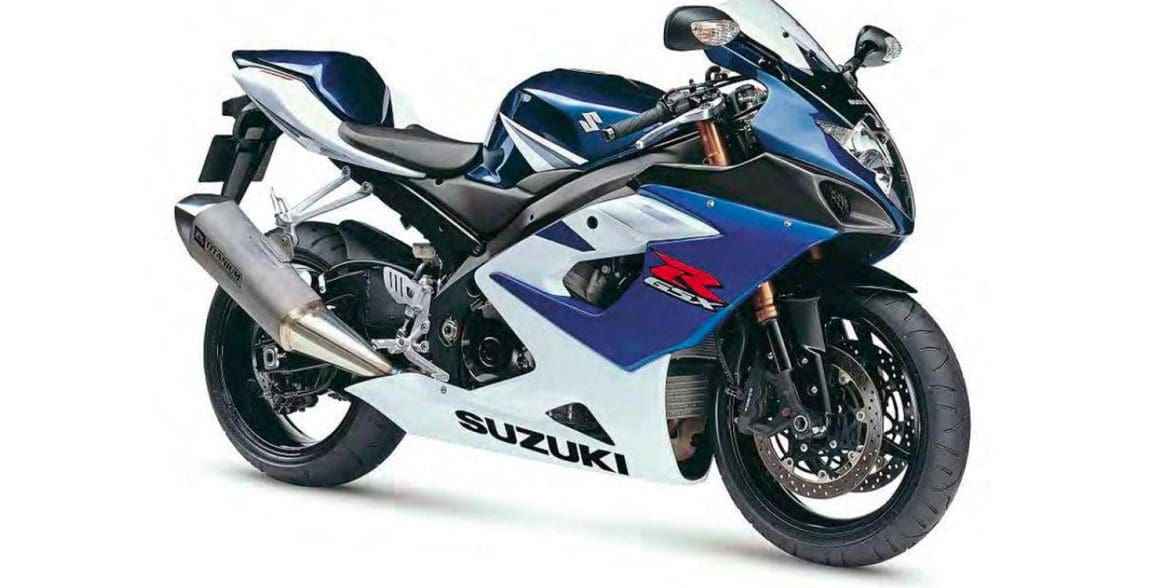It’s 2011 and I’m on track at Sydney’s Eastern Creek Raceway on my new Suzuki GSX-R. Not a spring chicken any more and painfully aware (pun fully intended) that I needed to experience a properly fast bike before my old man body threw in the towel for good, I’d dropped the cash on a direct descendant of the now-legendary K5/K6 Suzuki sportbikes. And boy, was it quick.
In fact, calling it “quick” would be like calling the sinking of the Titanic “unfortunate” or World War II “a disagreement.” It was so far beyond my skill set I felt like it was riding me more than I was riding it.
But I was still able to pin the throttle down the main straight and from what I could see through my wincing eyes and the brutal, buffeting windblast, I was hitting speeds that I’d never managed before. But then near the end of the session, it happened.
Maybe I wasn’t “on it” or – more likely – I was just outskilled, but as I wound on the Suzuki’s throttle to blast down the back straight I was overtaken at speed by a guy sitting bolt upright on a Ducati Multistrada 1200 S.
END OF AN ERA
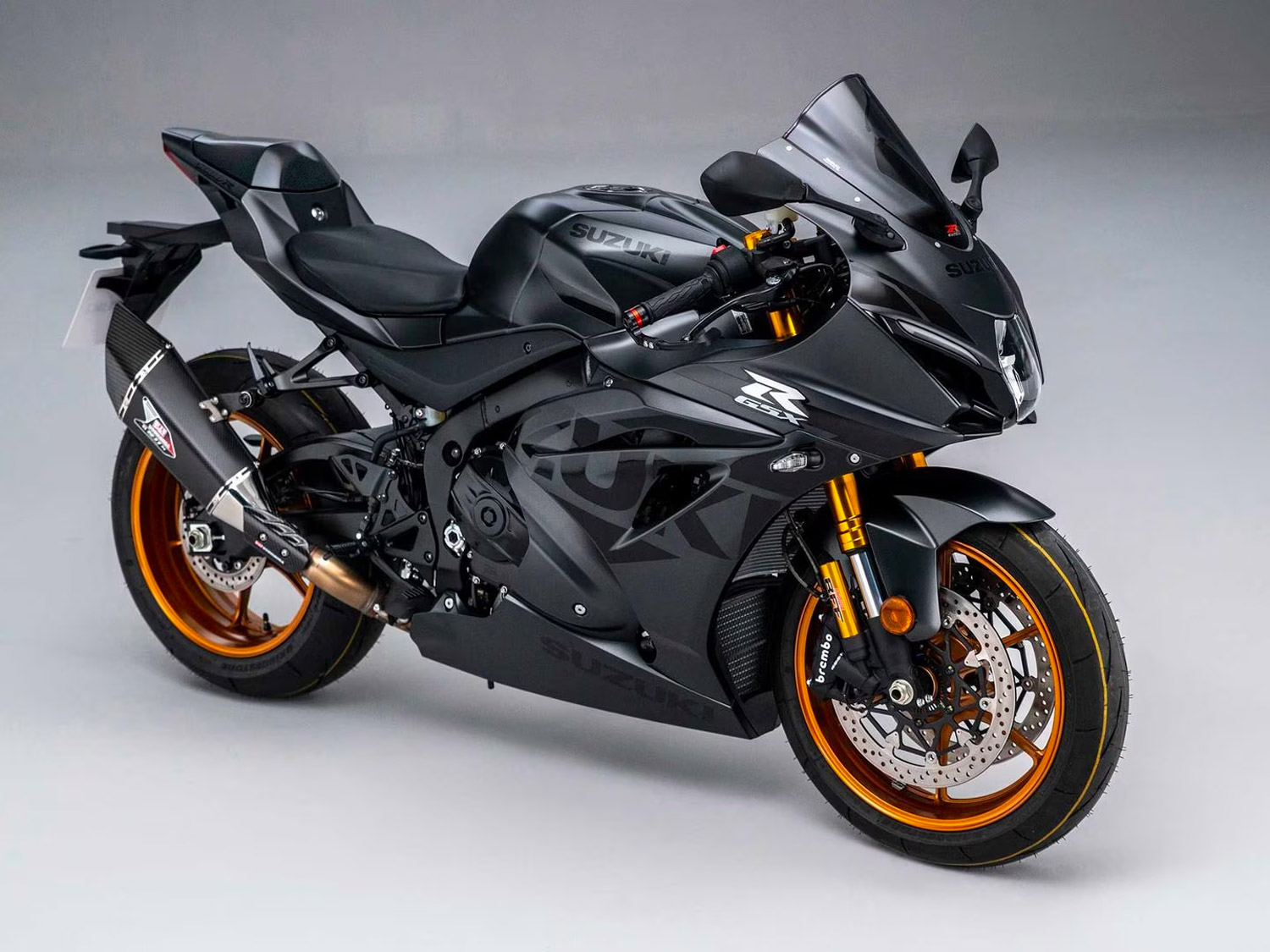
Sure, it was just a thing. I’m not the fastest guy on track by any stretch of the imagination and the 2011 Multistrada 1200 S did have 150 bhp to play with, but the sight of some guy that looked like he was sitting in on an ergonomic office chair fly right by me made my contorted riding position, sore wrists and cramping legs seem like a bit of a joke.
Why bother with a damn sportbike when you can be just as fast on something that’s really comfortable, too. And you can store things. And be protected from the wind. You get my drift…
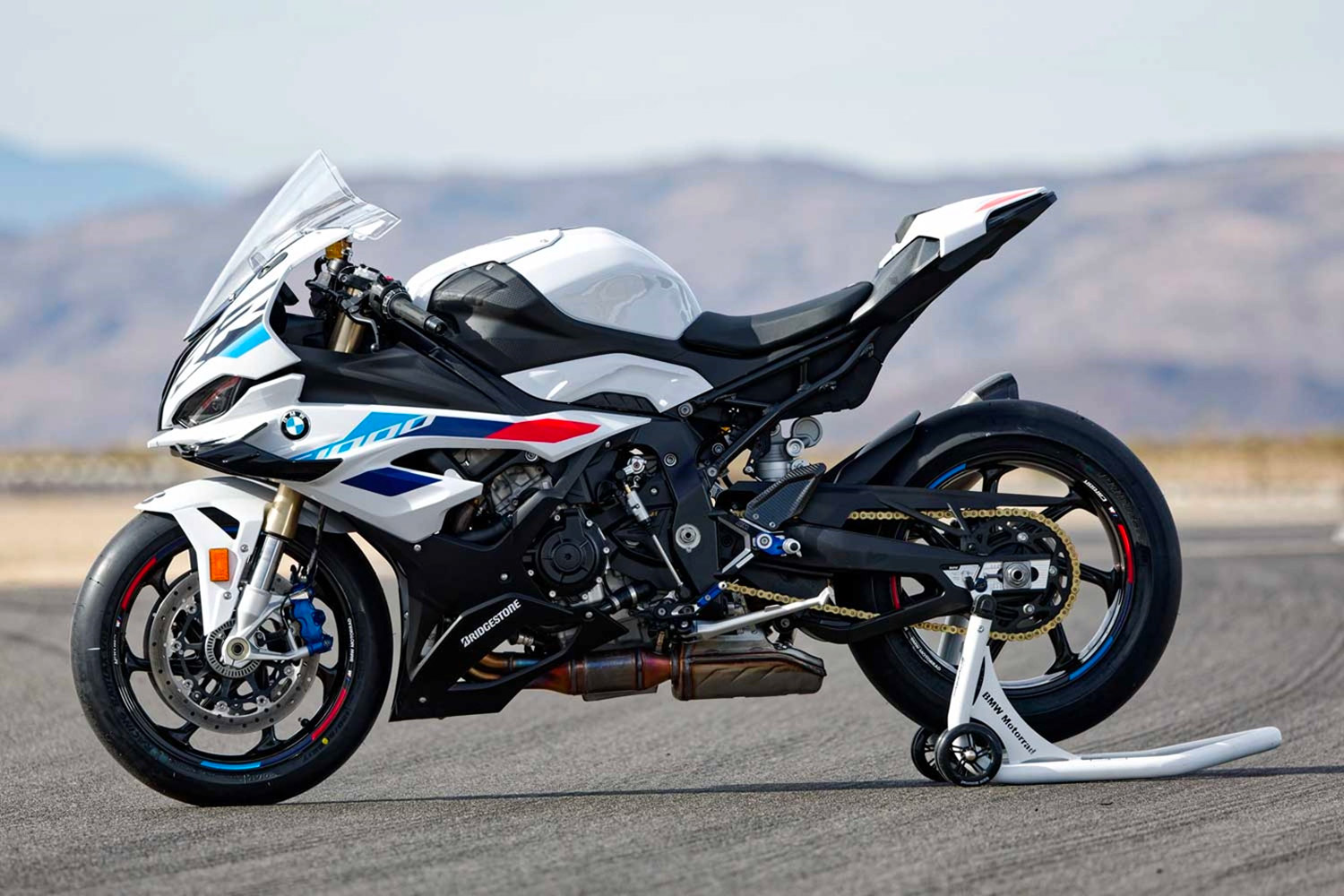
A SORE POINT
Of course, by 2011 the writing was already on the wall for sportbikes. The English motorcycle media, long the bastion of motorcycle journalism, industry sentiment and able to make or break a new bike simply by what they said in their reviews had already made up their minds. Sportbikes were the wrong tool for the wrong job, unless you happened to have a career as a trackday rider or you’d just been signed by a World Superbike team.
For the rest of us who needed to ride bikes on public roads for more than 20 minutes at a time in traffic and obey speed limits, they were about as sensible as using a nuclear weapon to straighten a crooked picture on your living room wall.
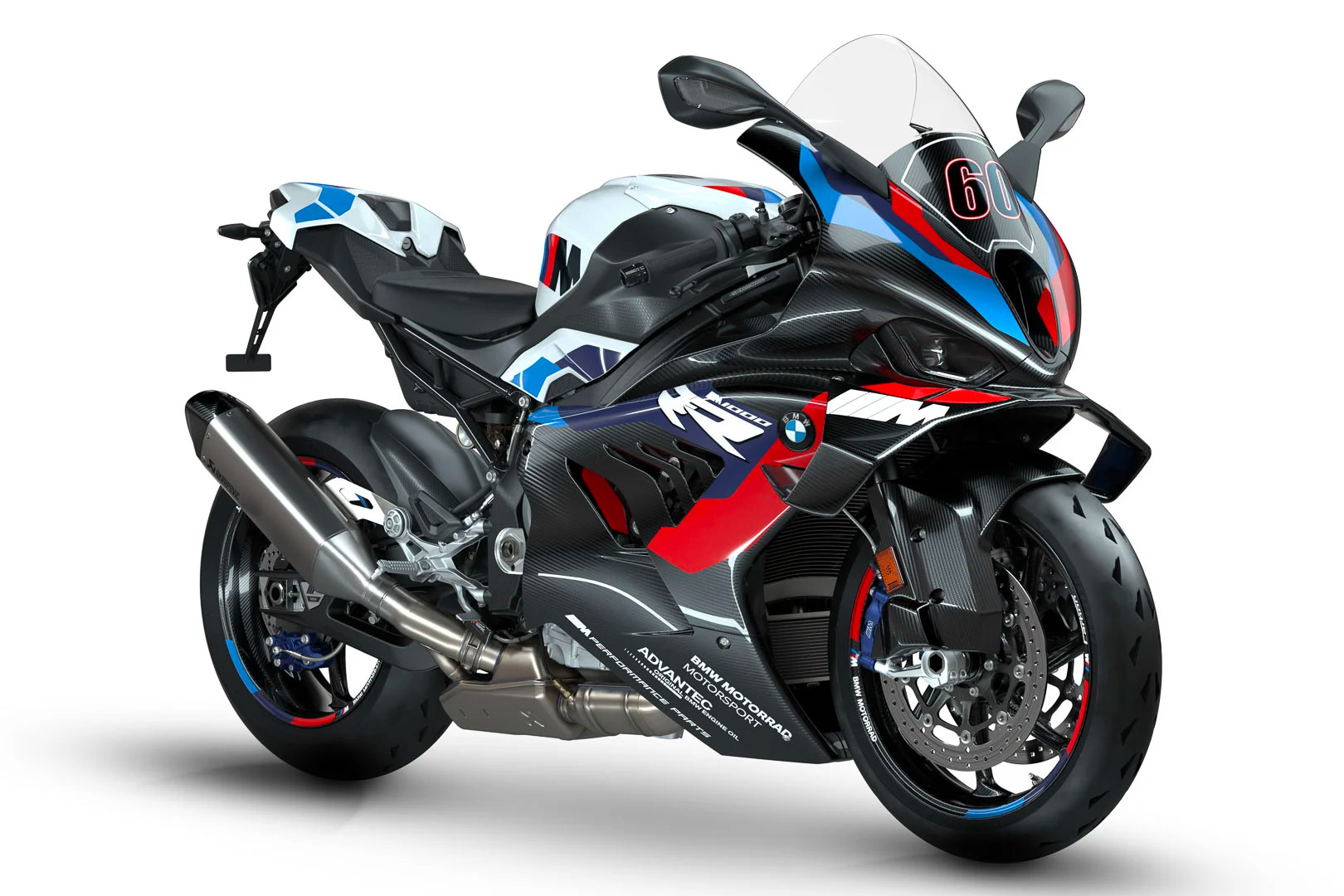
They were about as sensible as using a nuclear weapon to straighten a crooked picture on your living room wall.
My GSX-R could do 100 km/h in first, and that’s not just bragging. They way the sportsbikes were designed back then, all the torque was only to be found at the very top of the rev range. Forget about quiet, low revving starts when you gently release the clutch and off you go. Oh no.
You needed to rev the living bejesus out of most Noughties sportbikes just to make sure that they didn’t stall at the lights. Like hiding the chocolate biscuits on the top shelf of a giant’s pantry, finding that torque on anything else than a racetrack was nigh-on impossible.
Mind you, they were amazing at getting yourself up to the legal speed limit on freeway slip roads or on-ramps. So that’s 5 minutes every year where the bike will be in its element when not on a track…
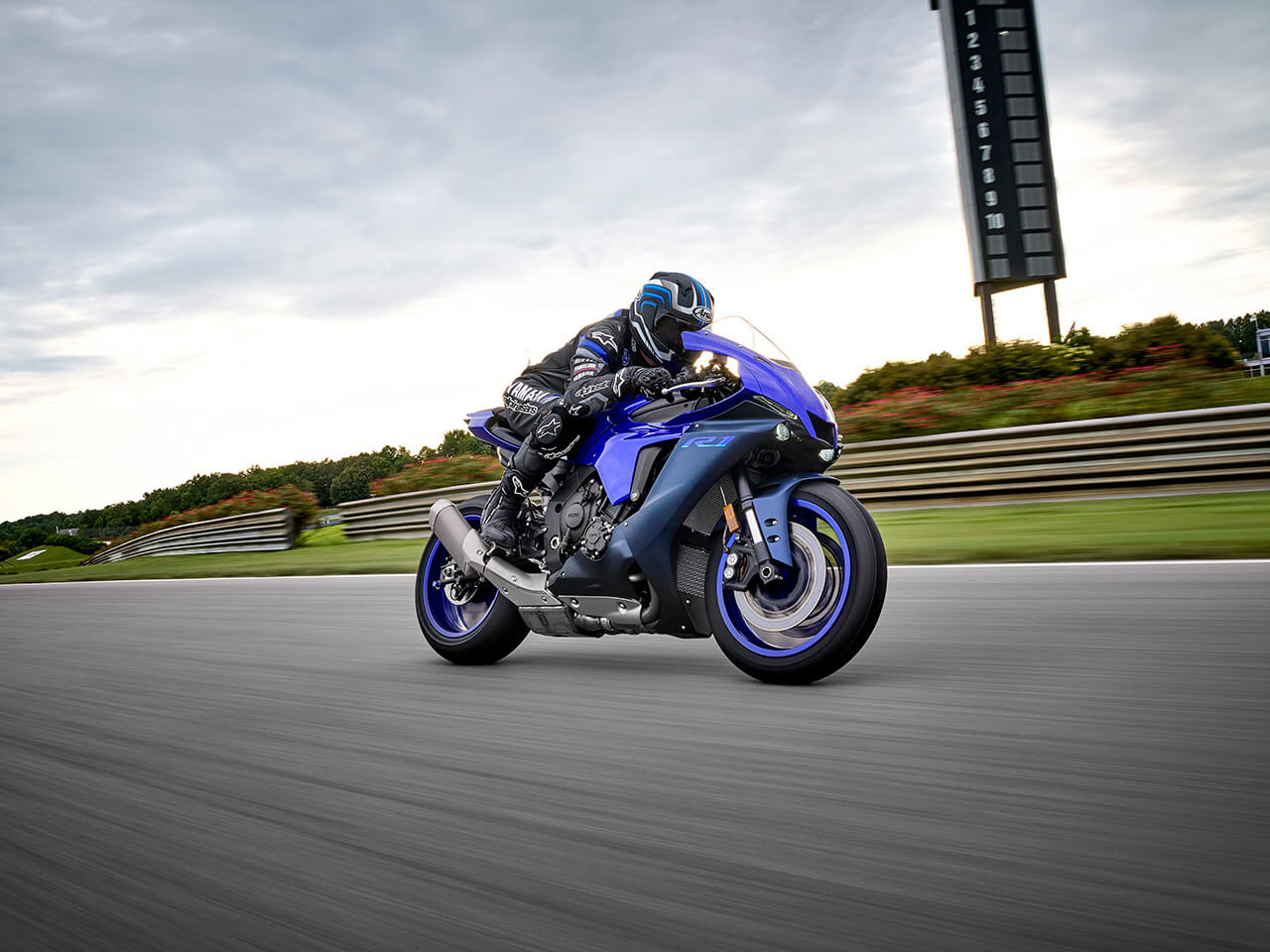
GETTING NUDE
And for the other 99.9% of the time, you’d be a frustrated, sore, “why-did-I-buy-this-silly-bastard” mess. But the bragging rights, MotoGP associations and your ability to smoke pretty much anything else on the road kept me and many others denying the truth; these bikes were so ridiculously bad at what we were using them for it was laughable.
Flip the idea on its head and your local track day would be wall-to-wall with Vespas or farm bikes. But the penny was starting to drop; the cafe racer boom of the noughties was now really taking hold, and riders across the world were seeing that there were other kinds of sporty bikes they could ride; and they were ones that wouldn’t make their chiropractors millionaires.
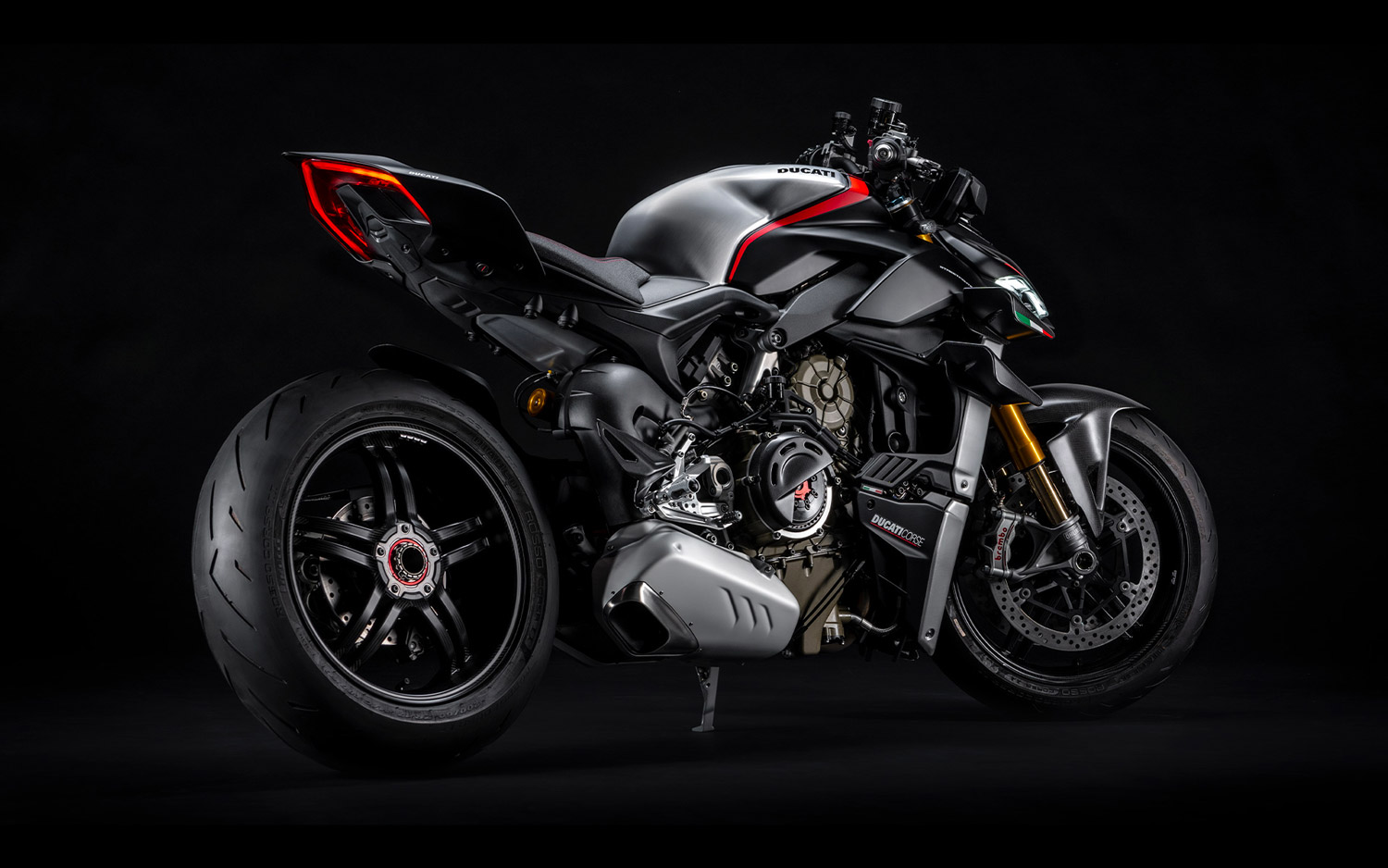
And since Ducati’s smash hit Monster from the early 90s, riders were becoming increasingly aware that there were no hard and fast rules handed down from on high telling us that all fast bikes also had to be torturously uncomfortable. Praise be to the ancient motorcycling gods! You could be fast and be all-day comfortable as well.
What kind of black magic was this!?
So sportsbike sales have slowly but surely been declining over the past 15 years. Chances are that most manufacturers would have seen the writing on the wall and just continued to release uninspiring, superficial updates on platforms that were more than a little tired until the entire segment just faded into the background. Hello Suzuki if you are reading this. But BMW is not most manufacturers.
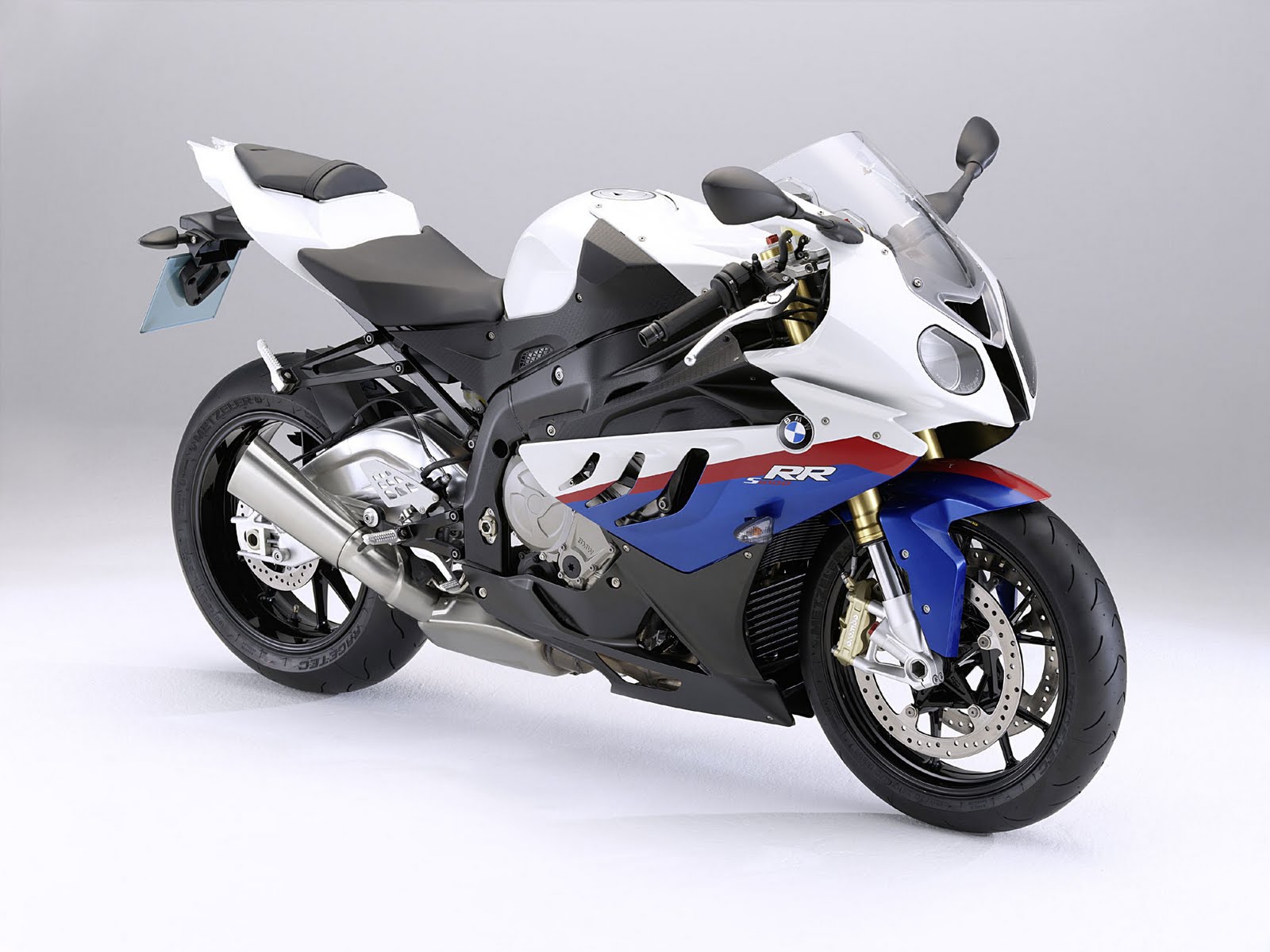
WHEN THEY ZIG…
Call it spectacularly poor timing or a stroke of genius, but against all the odds and despite the clear trends of the time, BMW pulled the covers off their S1000RR in 2009. It was welcomed with rave reviews and won more than its fair share of “Best Bike” awards in 2010. Rumour has it that the BMW engineers in Germany purchased a handful of K5 Suzukis and proceeded to reverse engineer them to find out exactly what their magic recipe was.
And by all accounts, they figured it out down to the last Japanese nut and bolt. Of course, other manufacturers have bucked the trend as well. As always, Ducati seem to march to their own beat and have released a never-ending stream of bright red crotch rockets. But like a classic rock band, the Ducati fan base seem ready and willing to relieve the factory of pretty much anything that they release. BMW had zero experience in the mainstream sportbike segment.
Meanwhile, there’s little doubt that the Japanese manufacturers haven’t really moved on. With the possible exception of Yamaha’s R1, the remaining “usual suspect” manufacturers all seem to be keeping up appearances rather than pushing any envelopes. Hell, when I look at the 2023 GSX-Rs it looks a lot like they’ve lifted parts right off my 2011 bike. And does anyone really know what the 2023 Fireblade looks like without referring to the photos here? I’m sure it’s fast and capable, but where’s the wow? At least the European offerings are daring to stand out a little.
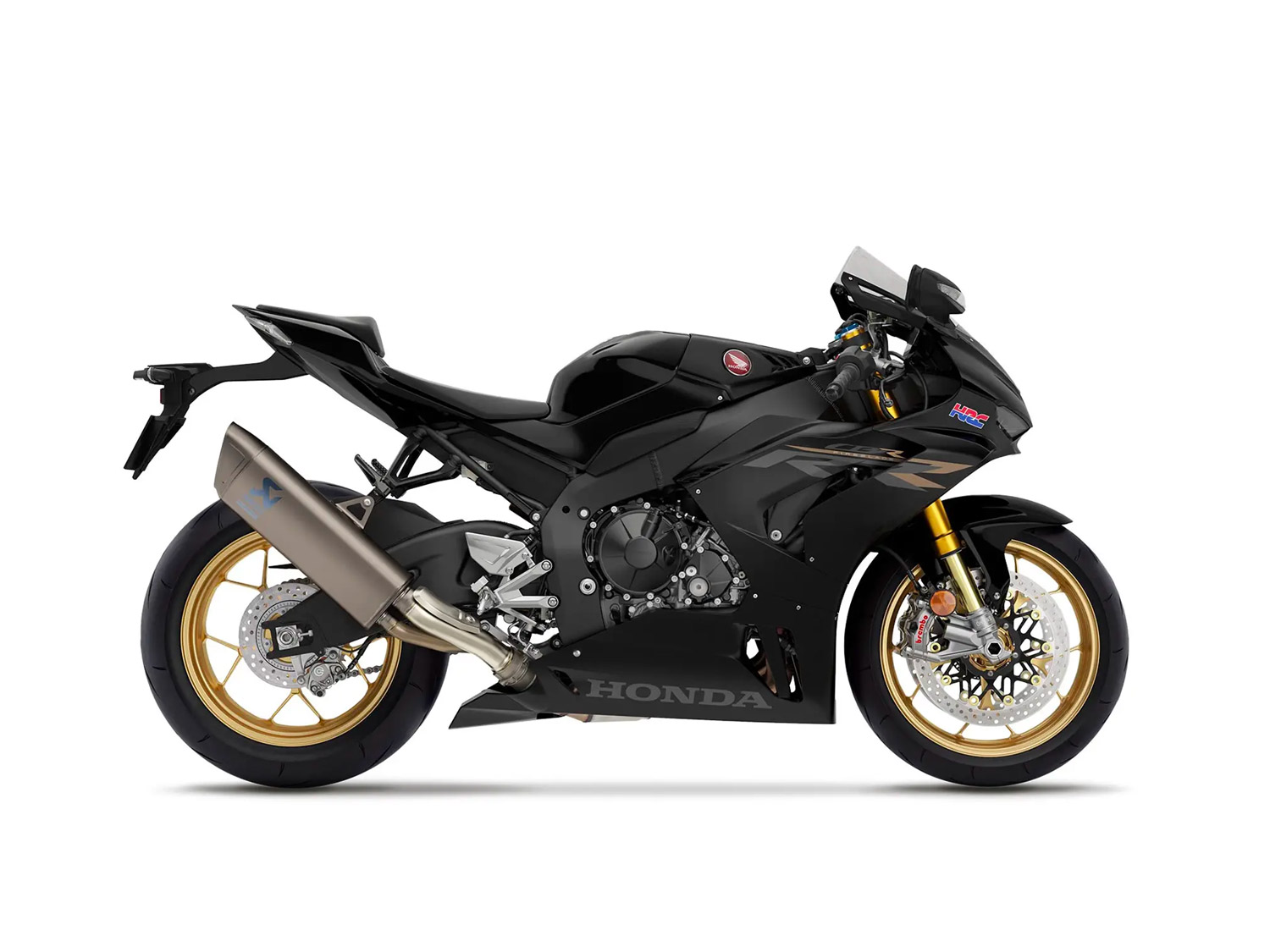
FAST FUTURE
So what’s the future for these uncomfortable explosions of plastic and horsepower? Will they continue their slow decline to the point where the manufacturers quietly drop them from their websites and showrooms while pointing into the distance at some shiny new offroader or retro cruiser? Hell no.
Just because one particular segment of the sport is in decline doesn’t mean it’s necessarily going to become extinct. And that’s because people. We’re so predictable with our competitive streaks and delicate egos. No matter how expensive, uncomfortable or unuseably fast motorcycles become, we’ll always want to one-up our friends and beat our track-day competitors.
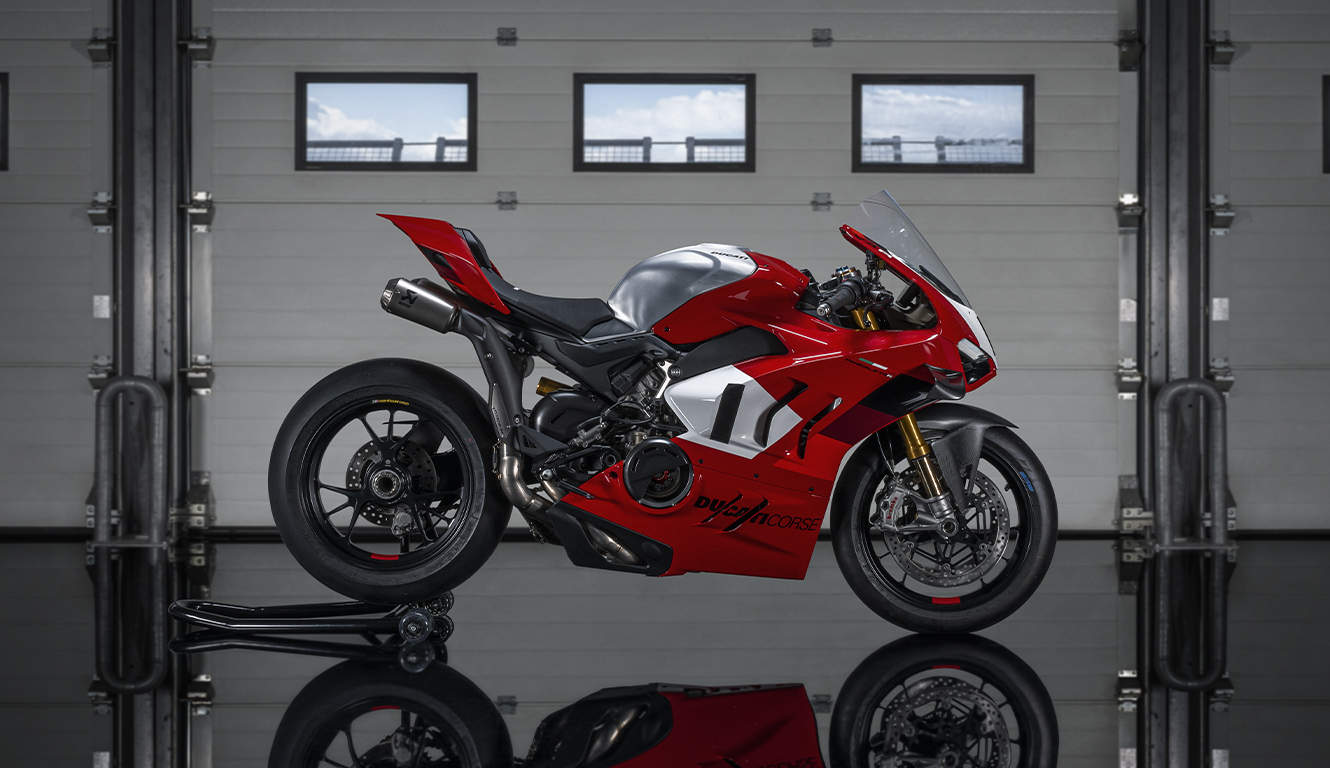
We may have figured out that sportbikes and public roads go together like small children and hand grenades, but that doesn’t mean we won’t drool over the latest eye-wateringly red, eardrum-rupturingly loud, leather-shreddingly fast race bike for the road. It’s what makes us human; we know they are quite literally an enormous pain in the arse, but we still crave them like a desert craves rain. Or to put it another way, we all know that supermodels would be infuriating to date, but a large number of us wouldn’t think twice about trying anyway.
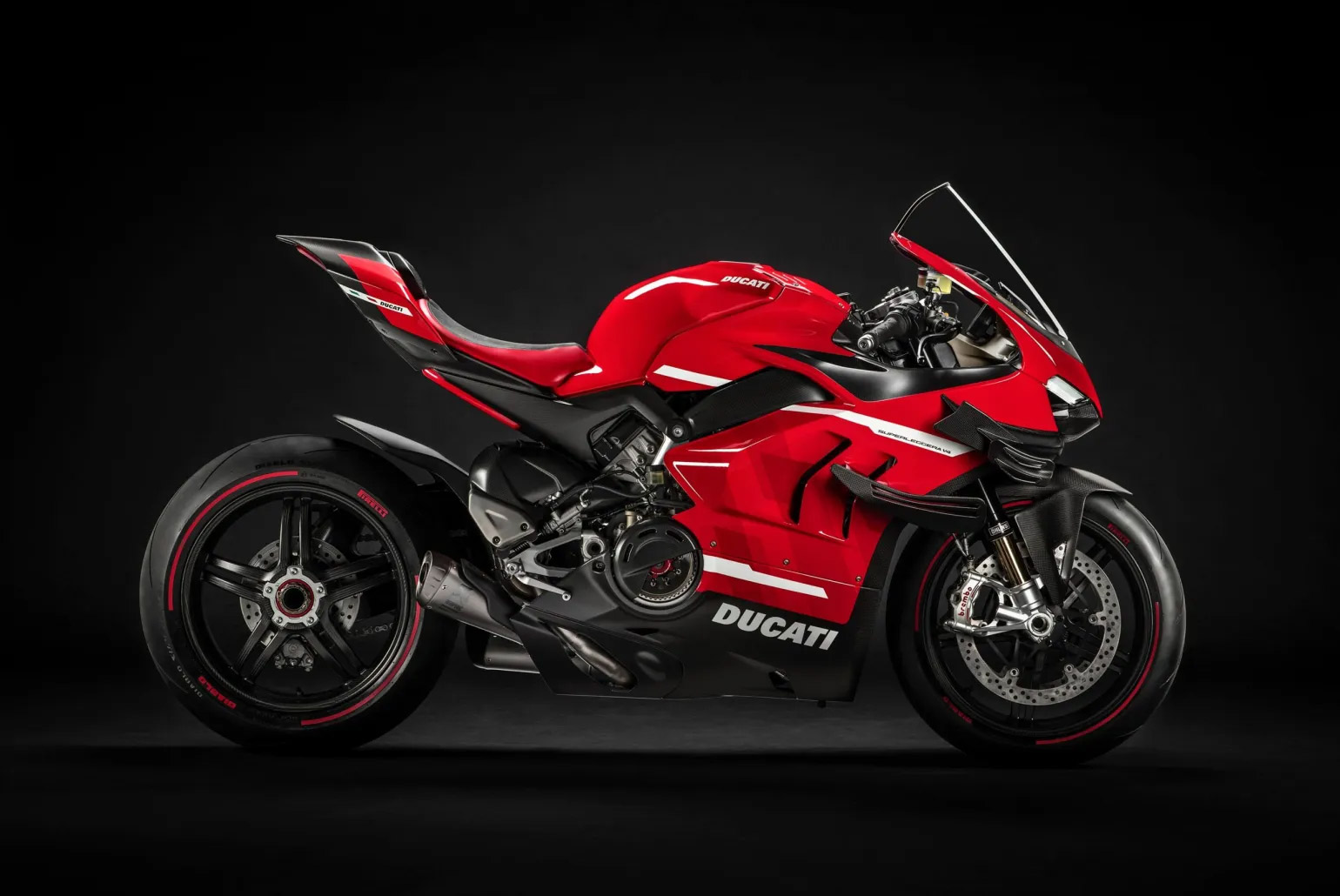
At least you get to say that you gave it a go. Similarly, when you get off that sportsbike at the end of a brutal day of riding that leaves you feeling like you’ve just played in a superbowl final completely naked and with the words “HURT ME” tattooed across your chest, you’ll look at it from across the car park and your bruised, cramped heart will still skip a beat. Damn you, sexy sportbikes. Damn you all to hell.


